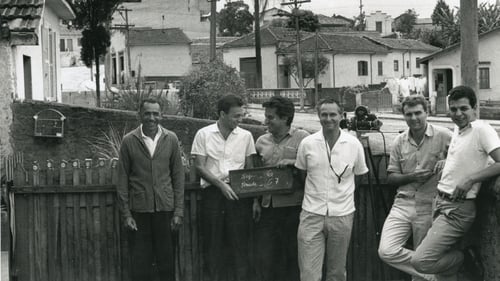
Producer
Peronist view of its history between the fall in 1955 and the electoral triumph of 1973 using a metaphor of the poem Martin Fierro.

Executive Producer

Producer
The confrontations and conflicts between the city of Padre Cicero's pilgrims and the attempts to develop the region.

Producer
In May 1969 at Tres Irmãos Farm, Caruaru, PE: Lourival Batista and Severino Pinto, two singers by profession, meet for a challenge. This film documents some moments of the Cantoria.

Executive Producer

Executive Producer

Executive Producer
A vision of the different forms of handicraft production in the interior of Paraíba.

Executive Producer

Executive Producer

Producer
An impassioned three-part documentary of the liberation struggle waged throughout Latin America, using Argentina as a historical example of the imperialist exploitation of the continent. Part I: Neo-Colonialism and Violence is a historical, geographic, and economic analysis of Argentina. Part II: An Act For Liberation examines the ten-year reign of Juan Perón (1945-55) and the activities of the Peronist movement after his fall from power. Part III: Violence and Liberation studies the role of violence in the national liberation process and constitutes a call for action.

Executive Producer
The practices of football in Brazil and the issues surrounding the sport. Press, players as a commodity, the popular passion, the practice on the fields of várzea. The statements of Luiz Carlos de Freitas, a young promise of Palmeiras, and Feola's coach, as well as an interview with Pelé.

Executive Producer
Viramundo shows the saga of the northeastern migrants that arrive in São Paulo, beginning with a train arriving and ending with a train leaving São Paulo in a cycle repeated every day. Viramundo's aim was to question why the military coup d'état in Brazil happened without any popular resistance or revolution or reaction of the society.

Sound Recordist
Viramundo shows the saga of the northeastern migrants that arrive in São Paulo, beginning with a train arriving and ending with a train leaving São Paulo in a cycle repeated every day. Viramundo's aim was to question why the military coup d'état in Brazil happened without any popular resistance or revolution or reaction of the society.

Executive Producer
A year in the life of a samba school, from the first rehearsals to the parade on the avenue.

Executive Producer
The origins of "cangaço", armed brigands in the Northeast between 1935 and 1939, interviews with some survivors of the fighting, police and outlaws movement. Interspersed with testimonials, authentic sequences of films made in 1936 by Benjamin Abraham, an Arab peddler who managed to film the famous band of Virgulino Ferreira da Silva, the "Lampião".

Producer
“My life was the same as that of thousands of gringos: I plowed and sowed the land, and went to the bar on Sunday.” Such is the refrain throughout LA PAMPA GRINGA, which endeavors to relate the sense of community built by the European settlers who in 1865 first colonized the town of Esperanza, located in Birri’s native province of Santa Fe. Largely consisting of juxtaposed daguerreotypes from the period and newspaper printings, LA PAMPA GRINGA exhibits Birri’s ability to weave narratives out of historical documentation in deft, admirable form.

Executive Producer
Tells the story of a poor family, inhabitants of the southern province of Santa Fe, who is forced to move into an abandoned railroad until waters recede Salado river wagon.

Production Director










